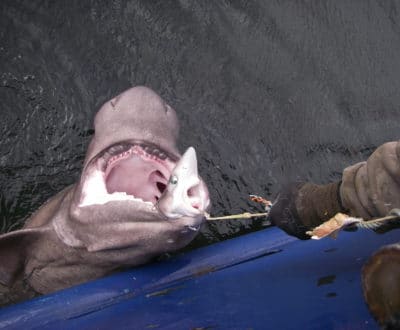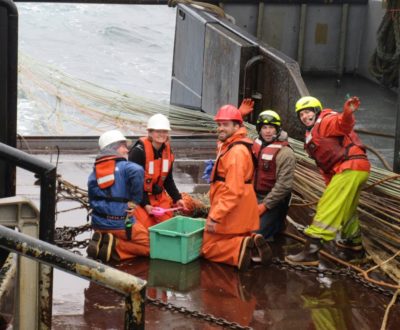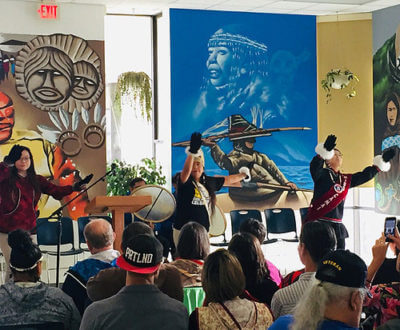Fisheries, Aquatic Science, & Technology Laboratory
Training solution-oriented scientists by immersing students in applied fisheries research
The Fisheries, Aquatic Science, & Technology (FAST) Lab, located at Alaska Pacific University (APU) in Anchorage, Alaska, employs APU’s unique blend of intensive and traditional coursework with applied fisheries research to engage students in active learning. Our approach, based on a training-through-service-philosophy, is to immerse undergraduate and graduate students in real fisheries and marine science research projects.
News & Updates

Sharks in Alaska: Search Opens for a Postdoctoral Researcher
Improving Catch Estimation of Sharks Using Electronic Monitoring The Fisheries, Aquatic Science, & Technology (FAST) Lab at APU and the NOAA Alaska Fisheries Science Center have teamed up to find a postdoctoral researcher interested in sharks and electronic monitoring. This unique project will involve field work, development of fisheries monitoring tools, and integration of new data streams iMore
APU FAST Lab researcher’s collaborative project published
A seascape scale habitat model to support management of fishing impacts on benthic ecosystems Members of APU's Fisheries, Aquatic Science & Technology (FAST) Lab, along with collaborators at NOAA and Cornell University recently published a paper in the Canadian Journal of Fisheries and Aquatic Science about a new model to assess habitat impacts from commercial fishing. The model has been More
FAST Lab Newsletter 001
The FAST Lab has a wide variety of research, field work, publications, and outreach going on at all times. Keep up to date with the FAST Lab Newsletter! Indigenous Peoples Day Indigenous Peoples Day was Monday, October 8th. Alaska was the second state in the nation to recognize Indigenous Peoples Day, and replaces Columbus Day. Members of the FAST Lab, Alaska Pacific University, its partMoreJoin Us
Prospective Students
FAST Lab is always looking for motivated, hard-working people interested in addressing local, state, national, or international research needs. Candidates with working experience in fisheries are desirable. Interested candidates should determine if their interests align more with Dr. Harris or Dr. Wolf and email the appropriate professor. The email should include a CV and a letter of interest highlighting relevant academic and work experience. Please email Dr. Harris and Dr. Wolf directly.

